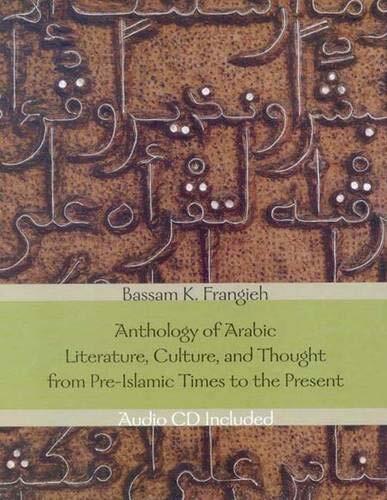
Anthology of Arabic Literature, Culture, and Thought from Pre-Islamic Times to the Present
아직 평점이 없습니다
Philosophy
Poetry
형식
하드커버
페이지
600
언어
아라비아어
출판됨
Sep 10, 2004
출판사
Yale University Press
판
Har/Com
ISBN-10
0300104936
ISBN-13
9780300104936
설명
This anthology serves as a comprehensive exploration of Arabic literature, culture, and thought, tracing its profound evolution from pre-Islamic times to the contemporary era. Bassam K. Frangieh meticulously curates a diverse range of texts that reflect the richness of Arabic heritage, providing readers with insightful glimpses into the traditions, values, and philosophies that have shaped the Arab world across centuries.
The collection not only showcases literary masterpieces but also highlights the intellectual movements and cultural milestones that accompany them. Through essays, poetry, and prose, the anthology encapsulates the transformation of Arabic expression and its enduring impact on global literature and thought. Each piece has been thoughtfully selected to illustrate pivotal moments in history and to celebrate the voices of notable Arab writers.
As readers delve into this extensive work, they encounter a tapestry woven with the threads of history, art, and intellect, encouraging a deeper understanding of the multifaceted Arabic experience. Frangieh's effort to include bibliographical references enhances its utility for scholars and enthusiasts alike, making it an invaluable resource for anyone interested in the complexities of Arabic culture and literature.
The collection not only showcases literary masterpieces but also highlights the intellectual movements and cultural milestones that accompany them. Through essays, poetry, and prose, the anthology encapsulates the transformation of Arabic expression and its enduring impact on global literature and thought. Each piece has been thoughtfully selected to illustrate pivotal moments in history and to celebrate the voices of notable Arab writers.
As readers delve into this extensive work, they encounter a tapestry woven with the threads of history, art, and intellect, encouraging a deeper understanding of the multifaceted Arabic experience. Frangieh's effort to include bibliographical references enhances its utility for scholars and enthusiasts alike, making it an invaluable resource for anyone interested in the complexities of Arabic culture and literature.